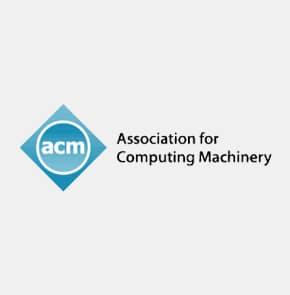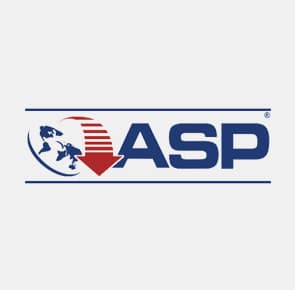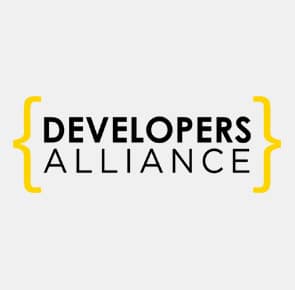What Does a Career in Software Development Entail?
Are you interested in pursuing a career in software engineering or development? If you've taken some computer science courses and are interested in designing and developing computer software intended to address the needs of individuals or companies, then software engineering may be an ideal profession for you. Software developers and software engineering professionals often create applications that help people complete specific tasks using knowledge of computer science, programming languages, operating systems, mobile application development, user interface and software design, web design, project management, and more. They also recommend software upgrades, develop software models for programmers, perform software maintenance on operating systems, perform computer architecture and database development, evaluate software quality, and collaborate with other software engineers, developers or a development team, and computer science specialists. These professionals can be employed by companies full-time or work for themselves on a contractual basis. If you think you might want to become a software developer or software engineer, a few common rewarding career path opportunities you'll want to explore include:
Read More- Software Developer
- Software Engineering
- Game Development
- Web Developer
- Mobile Application Developer
- Database Administrator or Architect
- Computer Information Systems
- Computer Hardware Engineer
- Computer Programming
- Information Security Analyst
Featured Online Software Development Programs
How to Earn a Software Development Degree Online
Generally speaking, the hardest part of earning a software engineering degree is completing the coursework. Whether you plan to enroll in a traditional or online learning degree program, graduating will take significant work and dedication. Success is never guaranteed, but taking the following steps can help prepare you for a career in software development:
- Foster your interest in and skill with software development and computer science
- Decide which level of education suits your career goals best (associate degree, bachelor's degree, or graduate degree)
- Research possible college and university programs
- Create, request, and organize any needed application materials
- Submit applications to at least three different programs (first, second, and third choices)
- Select the program that meets your personal and career objectives best
- Enroll in courses that align with your specific interests in the field
- Seek relevant part-time employment or internship
- Graduate from your chosen college or university
- Consider becoming professionally certified
Typical Software Development Degree Requirements

While it is possible to find entry-level work in software development without formal education, most professionals have an undergraduate college degree. Associate and graduate degrees are also available. These programs generally consist of 30 to 60 credit hours and take two years to complete, whereas Bachelor of Science or Arts programs generally consist of 120 hours and take four years to complete. Most employers prefer to hire candidates who have earned, at minimum, a bachelor of science in software engineering degree, development, computer science, or a related field.
Typical Software Development Certifications Needed
Once you have earned an online associate degree or bachelor's in software engineering degree online or in the classroom, certification is not required to begin working professionally. The lack of state licensing and certification requirements does not, however, mean there are not certifications available. In fact, there are several great opportunities available to new and seasoned professionals with a software engineering degree. The Institute of Electrical and Electronics Engineers (IEEE) Computer Society offers both an Associate Software Developer Certification and a Professional Software Developer Certification. Other options include Oracle Database SQL Certified Expert, Java Professional Programmer, and Microsoft Certified Solutions Developer (MCSD), which can all serve a software engineer very well.
Find Your Online Software Development Program
Academic Standards for a Software Development Degree
When you are accepted into a software engineering degree program, you will need to meet the academic expectations of your institution. While these vary from school to school, most colleges and universities expect software development and software engineering students to maintain a certain grade point average (GPA) and conduct themselves appropriately in and outside of class.
Every class you take will impact your average GPA, whether it covers fundamental concepts, foundational knowledge, and general education courses or software applications, application programming interfaces, and computer architecture. If it drops below the institution’s standard, you can be placed on academic probation. Failing to improve your grades while on probation can result in short-term or permanent suspension.
Additionally, colleges and universities hold students to other academic standards. Honesty and integrity are often highlighted in Student Code of Conduct, making cheating and plagiarism serious violations. Both can be grounds for suspension.
Exam / Experience Needed for a Software Development Degree
 Because professional software developers are not required to become certified, there is no general examination necessary before applying for employment. If you plan to earn a bachelor’s degree, however, you will need to take a college admission test. Most colleges and universities accept scores from either the ACT or SAT. These two examinations are very similar, but there are a few minor differences that may impact which one you prefer to take. You should spend time researching both options to ensure you register for the one that best suits your knowledge and testing style. Alternatively, you can take both examinations and submit your highest scores.
Because professional software developers are not required to become certified, there is no general examination necessary before applying for employment. If you plan to earn a bachelor’s degree, however, you will need to take a college admission test. Most colleges and universities accept scores from either the ACT or SAT. These two examinations are very similar, but there are a few minor differences that may impact which one you prefer to take. You should spend time researching both options to ensure you register for the one that best suits your knowledge and testing style. Alternatively, you can take both examinations and submit your highest scores.
If you plan to enroll in a graduate degree program, it is likely you will need to take either the GRE or GMAT, as well. Most colleges and universities have minimum score admission requirements posted on their websites.
It is also important to gain proper work experience within the field before graduating. As a student, you should consider looking for relevant part-time employment. There are also many companies that offer software engineering or related internships. These provide a great opportunity to practice the skills you are learning in school, as well as develop potentially beneficial contacts in the industry.
Software Developer Degree Options
Individuals interested in a software development career must choose between earning an associate, undergraduate, or graduate degree. While there are some companies that will hire people without a degree, most professionals do have some type of formal education. Preference is generally given to these candidates.
You should also keep the cost of attending school in mind. An undergraduate degree may make you more marketable, but it is also more expensive. The following average tuition rates may help you determine the best course of action:
| Degree Type | Public (In-State) | Private |
|---|---|---|
| Associate | $3,570 | |
| Undergraduate | $9,970 | $34,740 |
| Graduate | $8,670 | $29,960 |
Online Associate’s Degree
If you are interested in entry-level programming positions, an online associate’s degree in software development may be sufficient. While most professionals prefer to enroll in an undergraduate program, an associate’s degree can provide the basic knowledge necessary to work in the field. These programs usually consist of 60 credit hours of coursework and take approximately two years to complete. Assuming the school is accredited, graduates can either transfer their credits to a four-year, undergraduate institution or find employment.
Coursework frequently covers:
- Network Technologies
- Object-Oriented Coding and Logical Procedures
- Programming Fundamentals
- Developing Applications
- Database and Spreadsheet Applications
Online Bachelor’s Degree
Most people interested in a software development career earn an online software engineering bachelor’s degree. While it is possible to find work without one, employers give strong preference to candidates with formal education. Undergraduate degrees usually consist of 120 credit hours of coursework that takes a full-time student approximately four years to complete. The average curriculum is made up of both major-specific and general liberal arts coursework and graduates will be prepared to apply to a graduate program or find employment.
Coursework may include:
- Principles of Software Development
- Differential Equations
- Software Development Tools and Procedures
- Intro to Algorithms and Data Structures
- Ethical Issues in Computing
- Internet Development
Online Master’s Degree
A master’s degree in software development is not necessary, but some employees give preference to candidates who have one. Generally, graduates have access to higher level positions with more responsibilities. Graduate programs vary, but often consist of about 60 credit hours of coursework. For the average, full-time student, it usually takes two years to complete the requirements. It can, however, take longer for students enrolled in classes part-time.
Coursework frequently covers:
- Information Structures with Python
- Data Structures and Algorithms
- Advanced Programming Techniques
- Agile Software Development
- Software Design and Patterns
- Operating Systems
- Information Systems Analysis and Design
Earning Potential and Careers for Software Developers
Overall, the earning potential for individuals with a degree in software development is decent. According to the Bureau of Labor Statistics (BLS), the median annual wage for computer science and information technology occupations was $84,580 in 2017. This is significantly higher than the median annual wage of $37,690 reported for all occupations. The field is also projected to see a 13% increase in employment between the years 2016 and 2026.
Find Online Software Development Schools
It is important to realize that salaries can vary quite drastically from field to field and occupation to occupation. For example, a web developer in the bottom 10% of the profession’s pay scale made less than $36,830, whereas computer science and information research scientists in the top 10% of the profession’s pay scale made more than $176,780. This discrepancy is likely due to a difference in education. Web developers only need an associate’s degree, while information research scientists require, at minimum, a master’s degree. Higher-paying employment opportunities usually necessitate more extensive training and education.
Software Development Salaries by Field of Study
Not everyone who earns a degree in software development intends to become a software developer or software engineer. There are many other fields that you may want to consider. Some other options include:
- Computer and Information Research
Professionals working in information research positions generally design new approaches to computing technology, as well as find innovative ways to use technology that already exists. They often study and solve complex technology problems. Common duties include exploring fundamental issues in computing, inventing new programming languages, developing software systems, designing experiments, analyzing results, and publishing findings. - Computer and Information System Management
Professionals working in information system management positions generally plan, coordinate, and direct an organization or company’s related activities. They often establish information technology goals. Common duties include analyzing a company’s software engineering or operating system needs, planning hardware maintenance, ensuring network security, assessing project costs, and negotiating with vendors. - Information Security
Professionals working in information security positions generally plan and carry out security measures that protect a company or organization’s networks and systems. They often adapt to the number and type of cyberattacks. Common duties include monitoring networks for security breaches, installing firewalls, preparing reports, conducting penetration testing, and developing security standards.
| Field of Study | Associate’s Salary | Bachelor’s Salary | Master’s Salary |
|---|---|---|---|
| Software Development | $65,670 | $98,450 | $112,230 |
| Computer and Information System Management | $83,860 | $139,220 | $153,120 |
| Computer and Information Research | $21,130 | $25,240 | $32,980 |
| Computer Hardware Engineering | $66,290 | $115,120 | $130,150 |
| Computer Programming | $47,090 | $82,240 | $97,360 |
| Customer Support | $46,880 | $62,340 | $69,610 |
| Information Security | $90,940 | $95,510 | $98,100 |
Software Development Salaries by Occupation
Earning a degree in software development will qualify you for a variety of occupations. While some positions require an advanced degree, there are also several entry-level jobs available to individuals with an associate or bachelor degree. In most cases, your level of education will impact which positions you can apply for.
Some of the most common employment opportunities include:
- Software Developer
Software developers are responsible for serving as the creative mind behind various types of programs. These professionals may develop applications used by people or the underlying systems within a device. Other responsibilities often include analyzing user needs, recommending upgrades, creating models, ensuring program functionality, and collaborating with other software engineers or specialists. - Computer Hardware Engineer
Computer hardware engineers are responsible for researching, designing, developing, and testing computer systems and components. These professionals usually work with computer processors, circuit boards, memory devices, networks, and routers. Other responsibilities often include designing new computer hardware, testing hardware, analyzing test results, updating computer equipment, and overseeing the hardware manufacturing process. - Computer Programmer
Computer programmers are responsible for writing and testing code that is used to make computer applications and software. These professionals take program designs from software developers and engineers and transform them into a language computers can understand. Other responsibilities often include updating existing programs, testing programs for errors, and creating/testing code in an integrated development environment.
| Occupation | Entry-Level Median Annual Salary | Mid-Level Median Annual Salary | Late-Career Median Annual Salary |
|---|---|---|---|
| Software Developer | $62,500 | $82,400 | $97,600 |
| Computer and Information Systems Managers | - | - | - |
| Computer and Information Research Scientists | $105,500 | $120,200 | $153,600 |
| Computer Hardware Engineers | $73,100 | $91,900 | $109,000 |
| Computer Network Architects | $82,500 | $109,100 | $132,300 |
| Computer Programmers | $55,800 | $70,200 | $86,000 |
| Computer Support Specialists | $43,700 | $46,200 | $51,000 |
| Computer Systems Analysts | $56,100 | $71,200 | $85,300 |
| Database Administrators | $55,600 | $78,900 | $98,900 |
| Information Security Analysts | $59,700 | $82,000 | $101,700 |
| Web Developers | $50,500 | $66,900 | $77,600 |
Important Questions to Ask (FAQ)
How long does it take to earn a software development bachelor’s degree online?
If you plan to earn a bachelor’s degree in software development online, you should expect the process to take about four years. This is, however, assuming you plan to enroll in a program full-time. Most distance learning students have other obligations that result in them taking classes part-time. Students enrolled part-time in an online program may need five to eight years to complete the requirements.
How much does a software development bachelor’s degree online cost?
 Estimating what you will spend on your bachelor’s degree in software development is difficult. The cost of tuition varies significantly from institution to institution, based on geographical location, type, and reputation. According to the College Board’s Trends in Higher Education Series, students spent an average of $9,970 on tuition to attend in-state, four-year public institutions during the 2017-18 school year. Private schools were significantly more expensive, with students spending an average of $35,260 during the 2017-18 academic year.
Estimating what you will spend on your bachelor’s degree in software development is difficult. The cost of tuition varies significantly from institution to institution, based on geographical location, type, and reputation. According to the College Board’s Trends in Higher Education Series, students spent an average of $9,970 on tuition to attend in-state, four-year public institutions during the 2017-18 school year. Private schools were significantly more expensive, with students spending an average of $35,260 during the 2017-18 academic year.
That said, most colleges and universities have tuition rates listed on their websites. When researching your options, pay close attention to in-state and out-of-state costs, as well as other necessary expenses like books, room, and board.
Does the school have the major(s) you are considering?
 Every college and university is different. Many institutions have computer science and software development programs, but not all of them do. It is imperative that you verify that the school offers the major(s) and minor(s) you are interested in before submitting your application materials. You may also need to apply to the software development department directly, in addition to the college or university as a whole.
Every college and university is different. Many institutions have computer science and software development programs, but not all of them do. It is imperative that you verify that the school offers the major(s) and minor(s) you are interested in before submitting your application materials. You may also need to apply to the software development department directly, in addition to the college or university as a whole.
How many students graduate “on time,” or within four years?
While most undergraduate degree programs in software development will take four years to complete, this is not always the case. Some colleges and universities have more strenuous requirements that prevent students from graduating on time. This may not prevent you from enrolling, but it is something you should know about before enrolling. Most institutions will have graduation timeframes listed on their website. If you have trouble finding this information, however, you should contact the software development department directly.
What kind of accreditation does the program hold? How it is regarded in the field?
 When looking for a software development program, it is important to consider the institution’s accreditation status. Accreditation assures students, employees, and the general public that a college or university meets established quality standards for the profession. It also guarantees that the program adequately prepares graduates for work within the field.
When looking for a software development program, it is important to consider the institution’s accreditation status. Accreditation assures students, employees, and the general public that a college or university meets established quality standards for the profession. It also guarantees that the program adequately prepares graduates for work within the field.
In this case, the most prominent accreditation organization is the Accreditation Board for Engineering and Technology (ABET). This agency accredits college and university programs in natural science, computing, engineering, and engineering technology at both the undergraduate and graduate levels. There are four Accreditation Commissions that lead and conduct the ABET accreditation activities:
- Applied and Natural Science Accreditation Commission
- Computing Accreditation Commission
- Engineering Accreditation Commission
- Engineering Technology Accreditation Commission
Software, Technology and Skills Needed
Software development professionals need to learn how to utilize a wide variety of computer science technologies. The specific tools that they will utilize most will depend on the type of work they do.
Generally speaking, software engineers or developers should be familiar with:
- At least one programming language
- How to structure code
- Algorithms and data structures
- A development platform and any related technologies
- Database basics
- Source control
- Automated build and deployment systems
- Program testing and debugging
- A framework or development stack
Scholarships
Earning a degree in software development is an expensive endeavor. While there are many financial aid options available, including grants and loans, one of the best ways to limit your out-of-pocket cost is to apply for scholarships. Money awarded this way does not need to be repaid in the future.
Fortunately, there are several great scholarship options for students interested in science and technology fields. Because a single scholarship rarely covers all educational expenses, you should seriously consider applying for multiple awards. It is also important that you file a Free Application for Federal Student Aid (FAFSA). The FAFSA determines how much federal financial aid you qualify for and is used by colleges and universities to prepare your financial aid package once you have been admitted.
There are many scholarships available to software development majors, but a few prominent ones include:
-
Davidson Fellows Scholarship
Amount: $10,000, $20,000, $50,000
Deadline: February 13The Davidson Fellows Scholarship is funded by the Davidson Institute. Each year, the institute awards $50,000, $25,000, and $10,000 scholarships to students who have completed a significant piece of work in science, technology, engineering, mathematics, literature, music, and philosophy. Recipients must be 18 years old or younger.
-
Entertainment Software Association (ESA) Foundation Scholarship
Amount: $3,000 (15 Awards)
Deadline: April 26The ESA Foundation Scholarship is funded by the Entertainment Software Association. Each year, the ESA awards $3,000 in aid to 15 graduating high school seniors and 15 current college students. Recipients must be a woman or minority student pursuing or planning to pursue a degree in computers or video game arts.
Professional Organizations
As a software development student or professional, you will have access to a number of associations, organizations, and societies. Some of these groups are all-encompassing, while others offer support and resources for specific sub-fields. Each is different, but all offer many benefits to their members. Some of the most prominent options include:
- ACT | The App Association
- Association for the Advancement of Artificial Intelligence (AAAI)
- Association for Women in Computing (AWC)
- Association of Computer Engineers and Technicians (ACE – ACET)
- Association of Independent Information Professionals (AIIP)
- Computer Technology Industry Association (CompTIA)
- Computing Research Association (CRA)
- Information Systems Security Association (ISSA)
- Institution of Electrical and Electronics Engineers (IEEE)
- Institution of Engineering and Technology (IET)
- International Web Association (IWA)
- Network Professional Association (NPA)
- Technology Services Industry Association (TSIA)
- ACM
- ASP
- DA

ACM
Association for Computing Machinery
The Association for Computing Machinery (ACM) strives to provide resources that advance computing as both a science and a career. As the world’s largest educational and scientific computing society, ACM boasts a global network of more than 100,000 members. Membership benefits include access to special interest groups, magazines, newsletters, discounts, a career center, and a learning center with online courses, certifications, books, and videos.

ASP
Association of Software Professionals
The Association of Software Professionals (ASP) is a professional trade association comprised of software developers dedicated to creating and marketing new applications. Membership benefits include access to a spam-free discussion group, a monthly newsletter, discounts, free software, and opportunities to network with hundreds of software developers and vendors.

DA
Developers Alliance
The Developers Alliance works to serve and support software developers who are intent on building a better future. As the world’s leading advocate for software developers, it boasts a global network of more than 70,000 members. Membership benefits include access to research and analysis, a company listing in the directory, and an opportunity to share, engage, and exchange insights with other members.
If you are interested in a software development career, it is important to establish your goals and begin working toward them now. Your next steps, however, will greatly depend on your current circumstances.
For high school students, it is recommended that you meet with your school’s guidance counselor. He or she will be able to tailor your future academic ventures to better suit your goals. Not only will you likely find these classes more interesting, but it will help prepare you for college. A guidance counselor may also be able to provide a list of potential clubs and organizations that align with your interests. Participate in as many of these as possible while also maintaining a good GPA; colleges and universities give preference to candidates with a well-rounded background in both curricular and extracurricular activities.
For current professionals, you may want to meet with your supervisor to discuss your interest in software development. This is particularly important if you work in a related field, as your employer may provide financial assistance in return for signing an extended employment contract. It is also a good idea to sign up for relevant training sessions, seminars, or even courses at a local community college. Any credits you earn at an accredited school can be transferred to a four-year program later.
Remember, it is never too early or too late to begin preparing for a career in software development. Regardless of your situation, the following tips will be helpful.
Choosing an Accredited Online College
As previously mentioned, an institution’s accreditation status is extremely important. Attending a college or university that is not properly accredited can have significant consequences. Not only will it impact your ability to transfer credits and/or enroll in another higher education program, but it may also negatively influence your income potential.
Search Programs Offering Software Development Majors
You should always verify a school’s accreditation before submitting your application materials. In most cases, colleges and universities have this information prominently displayed on their websites. If you do have trouble locating it, contact the admissions department or the software development program directly.
Online vs On-Campus vs Hybrid Degree Programs
There are a few different types of software development programs available. While many students enroll in a traditional, four-year institution and complete their coursework on campus, there are a couple alternatives available. For students who already work full-time or have restrictive responsibilities at home, an online or hybrid degree program may be more functional.
Online programs offer flexible scheduling options and, in many cases, can be completed at a much slower pace. For this reason, distance learning has gained immense popularity over the last several years. There are, however, some very important drawbacks you should be aware of.
The primary problem with an online software development education is the lack of face-to-face interaction with instructors and peers. While this may seem like a minor issue for a technology-based field, it does still pose problems. Networking is an important aspect of any career. Without the opportunity to meet and interact with other professionals, it can be more difficult to find employment and/or advance your career.
To bridge the gap between on-campus and online programs, many colleges and universities are now offering hybrid degrees. Students enrolled in a hybrid program complete the majority of their coursework online, but must periodically visit the campus for short residency sessions. These workshops allow for some in-person instruction, hands-on work experience, and networking.
Post-Graduate Job Placement Assistance
After you graduate with your software development degree, your primary goal will become finding professional employment. For some people this is easier than it is for others. The truth is, job hunting is not a simple task. In fact, it can be quite challenging, especially if you have never done it before and have no leads or connections in the field.
Fortunately, many colleges and universities attempt to make the transition from student to professional a little easier. While it is impossible for an institution to guarantee employment, most do provide an assortment of career-related resources to both current students and recent graduates. Post-graduate job placement assistance programs vary significantly from school to school, but often include one or more of the following:
- Interview Preparation
- Resume Development
- Career Coaching Services
- Internship Opportunities
- Job Fairs
When researching potential software development programs, it is a good idea to verify that job placement assistance is available. You should also inquire about the department’s employment rates after graduation. If they are particularly low, you should seriously consider enrolling at an alternative institution.
Accreditation Can Affect Your Salary
It is not uncommon for employers to pay their employees less in the absence of a degree from an accredited school. In fact, some corporations may refuse to consider this type of candidate at all. While a stance like this may seem unreasonable, you must keep in mind that unaccredited institutions do not adhere to standard education and/or field standards. Without regulation, there is no way to determine whether or not a graduate actually has attained the knowledge and skills necessary to be successful in the professional world.
As a result, accreditation should be a serious factor when considering which college or university to attend. Do not chance the loss of time and money in attending an unaccredited institution.
Frequently Asked Questions
What kinds of skills do I need to be a software developer?
In order to gain the education you’ll need, you will probably need to have at least some mathematical skill. You’ll also need to be able to understand and use computer logic when you are learning various programming languages and skills. Time management and organizational skills will help you not only get through school but will also help you to thrive when it comes to getting started in a technology or business work environment. The same is true of problem-solving, which you will need to do in your work and in dealing with interpersonal issues. Speaking of interpersonal, you should have the ability to work in a team or on your own, and you’ll need to be able to translate for those outside of your specialty if you are working in the business field.
What are the most common issues software developers will have to deal with day-to-day?
One of the issues you’ll have to get a handle on right away is dealing with bugs and broken code. This can get especially tricky if you are working with a team on creating said code. Different people’s techniques may not work well together, and every program has bugs. You’ll deal with these from the time you start writing code right up until you retire, as long as you’re working on new software. Other problems that are likely to show up with time management, where you haven’t allotted (or been allotted) enough time to complete each step and therefore run into issues when unchecked code goes into the codebase or missed parentheses turn into real problems. Other issues can tie into or cause these, such as lack of code review or lack of leadership.
Search All Programs
